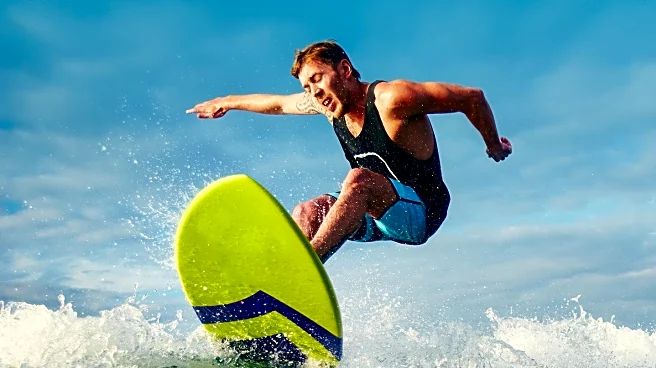What's Happening?
Oliver Phillips, a passionate advocate for inclusivity in water sports, has launched a charity named All Aboard to enable disabled individuals, particularly those who are deaf, to participate in activities such as sailing, kayaking, rowing, and paddleboarding. Phillips, who is deaf himself, uses British Sign Language (BSL) to communicate and support participants, helping them overcome barriers to participation. After securing initial funding in 2024 for a trial that sold out, Phillips obtained further funding from Paddle UK to continue these activities throughout 2025. His efforts have been recognized with a nomination for BBC Radio Bristol's Make a Difference Awards.
Why It's Important?
The initiative led by Oliver Phillips is significant as it addresses the accessibility challenges faced by disabled individuals, particularly the deaf community, in engaging with water sports. By providing opportunities for these individuals to participate, Phillips is fostering inclusivity and promoting physical activity, which can enhance mental and physical health. His work not only empowers participants by building their confidence and skills but also raises awareness about the importance of accessibility in sports. This initiative could inspire similar programs across the U.S., promoting inclusivity in various recreational activities.
What's Next?
With the continued support from Paddle UK, Phillips plans to expand the reach of All Aboard, potentially increasing the number of participants and activities offered. The nomination for the Make a Difference Awards could further elevate the profile of the charity, attracting more funding and support. As awareness grows, other organizations may be encouraged to adopt similar inclusive practices, broadening the impact of Phillips' work beyond the local community.
Beyond the Headlines
Phillips' initiative highlights the broader societal need for inclusivity in recreational activities, challenging existing norms and encouraging the integration of disabled individuals into mainstream sports. This movement could lead to long-term cultural shifts, where accessibility becomes a standard consideration in the planning and execution of public and private sports programs.









